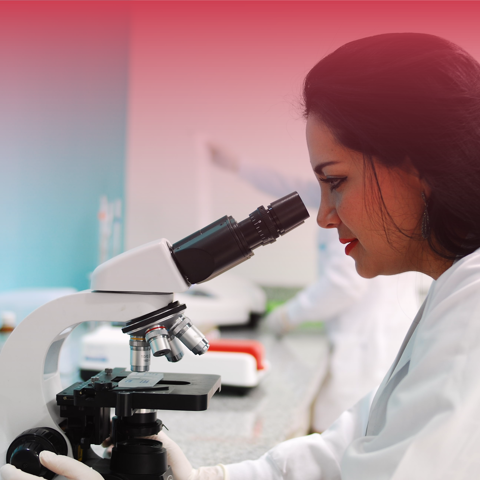
Funded Research
Our Research Funding
Our annual funding round is designed to support bright young researchers, as well as established institutions, as they strive to make the kind of life-changing breakthrough our diabetes community is hoping for.
Our first research award was made in 1999 for a small equipment grant and since that time, we have committed more than £13.5 million to diabetes research in the UK and as part of the International Diabetes Wellness Network, around the world.
To read more about our research strategy, click here.
2007

Sutherland-Earl Clinical Fellowship
Bariatric surgery for diabetes: Does the GLP1 or GIP response predict who will respond?
Recipient: Dr Mimi Chen
Institution: Bristol Royal Infirmary
City: Bristol
Amount: £165,000 (three years)
- Description - click here to read
-
Weight loss (bariatric) surgery is successful at inducing and maintaining a significant reduction in weight, for this reason it has become a popular way of treating severely obese individuals. These operations have also been found to improve and, in some cases, cure type 2 diabetes (T2DM) and thus many doctors now suggest that this should become a standard treatment for T2DM associated with severe obesity. However, we cannot predict who will do well due to a huge variation in response of diabetes to surgery, even if similar amounts of weight are lost. This project aims to identify whether gut hormones, known to improve the body’s response to insulin, could influence the surgical outcome in overweight patients with T2DM. Before surgery, we will look at changes in gut hormones in response to a meal to see if this predicts who will respond best to surgery and whether this is a result of a greater improvement in the way insulin works or the amount of insulin released by the body. If gut hormone responsiveness was found to predict who was likely to do well with surgery, this would enable doctors to ensure that people who would benefit the most were offered surgery.
2007

Pump Priming
Development of High Field Magnetic Resonance Techniques for the non-invasive investigation of diabetic kidney disease
Recipient: Professor S M Marshall
Institution: University of Newcastle upon Tyne, Diabetes Research Group
City: Newcastle
Amount: £29,559 (one year)
- Description - click here to read
-
Investigation of kidney disease is limited by available techniques, which include biopsy and use of radioactive tracers. Magnetic resonance imaging (MRI) is non-invasive, does not use ionising radiation and is repeatable. We will develop MRI techniques to study blood flow into the kidney through the renal artery; to measure changes in the oxygen content of the kidney in response to drinking; and to examine the anatomy of the renal artery. We will then use the techniques to study kidney disease in Type 1 diabetes. They will also be useful for kidney research in Type 2 diabetes, and will be adaptable for routine clinical MRI tests.
2007

Pump Priming
Investigation of the role of newly identified type 2 diabetes susceptibility genes in the pathogenesis of type 2 diabetes
Recipient: Dr Audrey Brown
Institution: School of Clinical Medical Science, Newcastle University
City: Newcastle
Amount: £21,900 (one year)
- Description - click here to read
-
It has long been recognised that there is a genetic component to the development of type 2 diabetes. Recent studies have identified a number of genes, alterations within which are associated with an increased risk of developing type 2 diabetes. However, what these genes do and how they might affect a person’s risk of developing this disease is not known. This project aims to manipulate the expression of these genes in cultured cells in order to examine the function of these genes. This will help increase our understanding of the mechanisms behind the development of type 2 diabetes. It has long been recognised that there is a genetic component to the development of type 2 diabetes. Recent studies have identified a number of genes, alterations within which are associated with an increased risk of developing type 2 diabetes. However, what these genes do and how they might affect a person’s risk of developing this disease is not known. This project aims to manipulate the expression of these genes in cultured cells in order to examine the function of these genes. This will help increase our understanding of the mechanisms behind the development of type 2 diabetes.
2007

Pump Priming
Molecular mechanisms involved in the cytoprotective actions of mono-unsaturated fatty acids in pancreatic beta-cells
Recipient: Professor N G Morgan
Institution: Institute of Biomedical and Clinical Science, Plymouth
City: Plymouth
Amount: £30,000 (one year)
- Description - click here to read
-
The incidence of type 2 diabetes is rising rapidly in the UK and the condition is increasingly being seen in young people as well as those who are older. This appears to be associated with escalating levels of obesity within the population since there is evidence that elevated circulating levels of fatty acids may cause dysfunction and, ultimately, the death of the insulin-secreting beta-cells in the pancreas. We are studying this process using beta-cells cultured under laboratory conditions and have made a surprising observation. We find that, while some fatty acids are poorly tolerated by the cells, others are extremely beneficial. Indeed, a certain sub-group of fatty acids appears to be able to overcome the effects of various toxic molecules in beta-cells, suggesting that these particular fatty acids activate a very powerful survival pathway. This project will investigate the actions of the relevant fatty acids to understand how and why they protect the beta-cells. It is hoped that this information may then open the way to the discovery of new therapeutic targets that might be used to treat patients with type 2 diabetes.
2007

Pump Priming
Substrate selection and metabolomics in the diabetic mouse heart: validating metabolic markers of disease progression
Recipient: Dr Julian Griffin
Institution: Department of Biochemistry, University of Cambridge
City: Cambridge
Amount: £29,899 (one year)
- Description - click here to read
-
Metabolomics is a novel approach that aims to understand gene function and define disease processes by measuring a larger number of metabolites in a cell, tissue or biofluid and monitoring concentration changes that accompany a given change. This proposal will allow a post doctoral researcher to take part in a ten month exchange fellowship between a metabolomics laboratory at Cambridge University, UK and a physiology/ in vivo NMR laboratory at Harvard Medical School, MA, USA.
Donate Today
I would like to make a regular donation of
I would like to make a single donation of